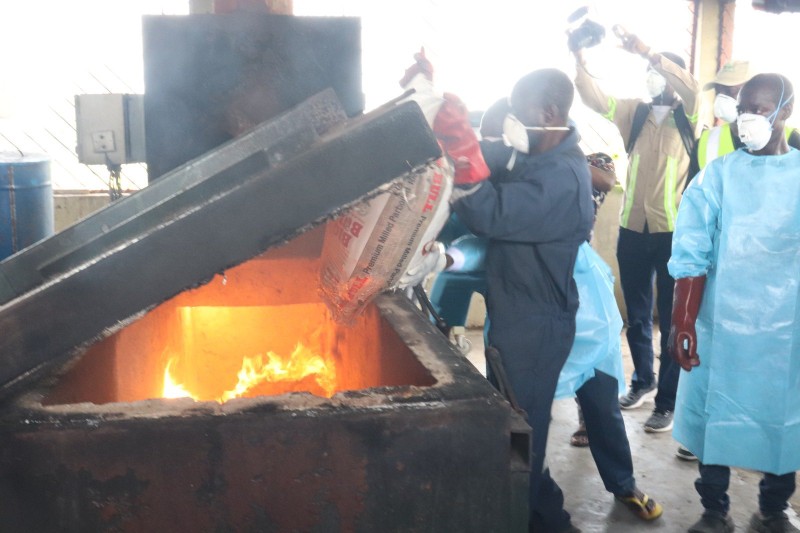Nearly four tonnes of seized pangolin scales and over 100 kilograms of animal skins, including leopard, python, and crocodile, were burned in Abuja, Nigeria's capital. The move was initiated by the National Environmental Standards and Regulations Enforcement Agency (NESREA), the Elephant Protection Initiative (EPI) Foundation, and the United Nations Office on Drugs and Crime (UNODC).
"Nigeria's decision to incinerate seized pangolin scales and other skins is a shining example of a nation taking proactive measures to protect its natural heritage and contribute to the global fight against wildlife crime," stated the Director of Stockpile Management at the Elephant Protection Initiative (EPI) Foundation, Ruth Musgrave.
Pangolins are among the most trafficked mammals globally. Despite all eight existing pangolin species being listed as maximally protected under the Convention on International Trade in Endangered Species of Wild Fauna and Flora (CITES), illegal trade in pangolin parts has pushed them to the brink of extinction.
Nigeria has become a major hub for the supply and trade of pangolin scales destined for Asia, where pangolins are highly valued in traditional medicine and their meat is considered a delicacy. With Asian pangolin populations declining, shipments from Africa have grown to meet the demand.
"The illegal wildlife trade is a serious threat to our natural heritage and global biodiversity. Nigeria is committed to playing its part in addressing this crisis. By destroying these pangolin scales alongside leopard, python, and crocodile skins, we send a strong message that illegal wildlife trafficking will not be tolerated, and we will take every necessary measure to protect our unique ecosystems and endangered species," stated Aliyu Jauro, the CEO of the National Environmental Standards and Regulations Enforcement Agency (NESREA), during the event, according to local media.



